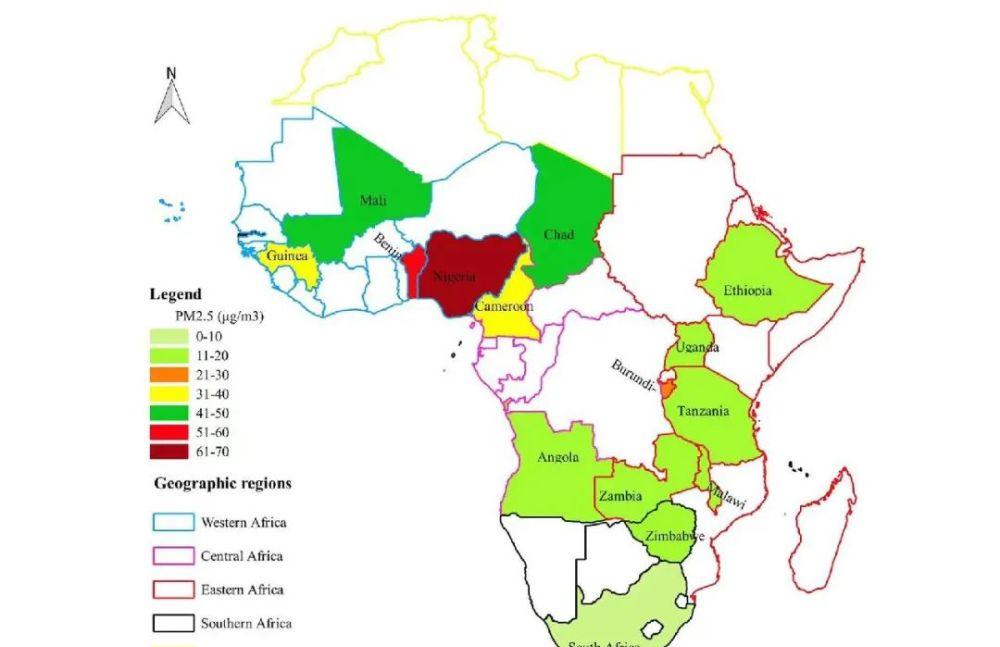Recently, with the support of the National Natural Science Foundation of China's major research program, Professor Kan Haidong's research group from the School of Public Health of Fudan University led Jovine Bachwenkizi, a Tanzanian doctoral student studying in China, dr. Liu Cong, school of public health of Fudan University, etc., in a multi-center study, collected birth records, baby birth weight, pregnant women and household information from 15 African countries in 2005-2015, and used a globally covered satellite model for exposure evaluation. To explore the effects of exposure to fine particulate matter (PM2.5) during pregnancy on low birth weight and preterm birth. The results showed that exposure to PM2.5 during pregnancy had a significant adverse effect on preterm birth and low birth weight. The study not only provides epidemiological evidence of air pollution and birth outcomes in the African region, but also provides some ideas for future air pollution and health research in similar low- and middle-income countries.

Kan Haidong introduced,
Preterm birth (28 to less than 37 weeks' gestation) and low birth weight (infant birth weight less than 2500 g) are the most common adverse birth outcomes and are often used as important predictors of morbidity and mortality during infant growth. The World Health Organization estimates that more than 20 million children worldwide are low birth weight each year, accounting for about 20% of all births; about 15 million babies are born prematurely each year, accounting for about 11% of all births. As medical and socioeconomic levels progress, the incidence of low birth weight and preterm birth is decreasing globally, but sub-Saharan Africa has consistently been the region with the highest incidence of these outcomes.
The study collected a total of about 140,000 birth records of infants who met the needs of the analysis, of which 13,214 infants were observed to be low birth weight (10%) and 4,377 infants were born prematurely (3.3%). The study found that exposure to PM2.5 during pregnancy significantly increased the risk of low birth weight and preterm birth in multi-african infants, and the increase of PM2.5 concentration by 33.9 micrograms per cubic meter significantly increased the risk of low birth weight in infants by 28% and the risk of preterm birth in infants by 8% in different regions of Africa; in different regions of Africa, the association between PM2.5 exposure and low birth weight remained stable, while the effect of PM2.5 on preterm birth was only present in West Africa and Southern Africa. Through stratification analysis, it was found that PM2.5 more significantly affected the low birth weight of female infants, while the impact of PM2.5 on preterm birth was more pronounced in women of higher age. In addition, the study estimated the effect of PM2.5 on absolute values of birth weight, with PM2.5 concentrations increasing by 33.9 micrograms per cubic meter and infant birth weight decreasing by about 47 grams.
Kan Haidong said that the above observational research results need to be supported by subsequent toxicological evidence, and it is necessary to continue to pay attention to the health effects of other air pollutants.
The research results have been published in the latest issue of The Environment International, an authoritative international journal in the field of environmental health.
Source: Morning News